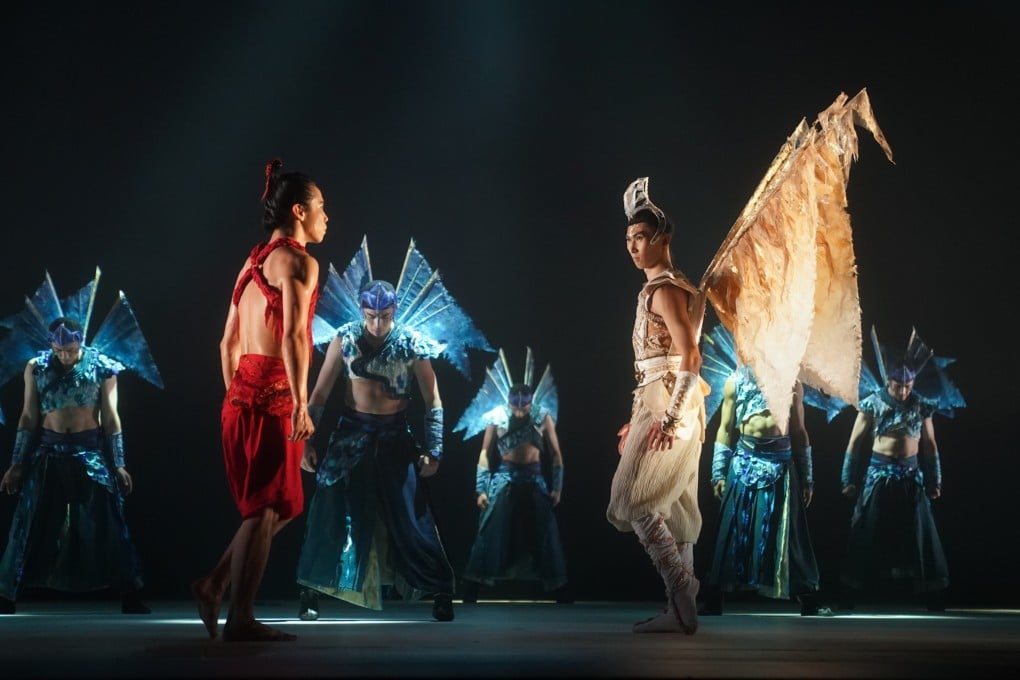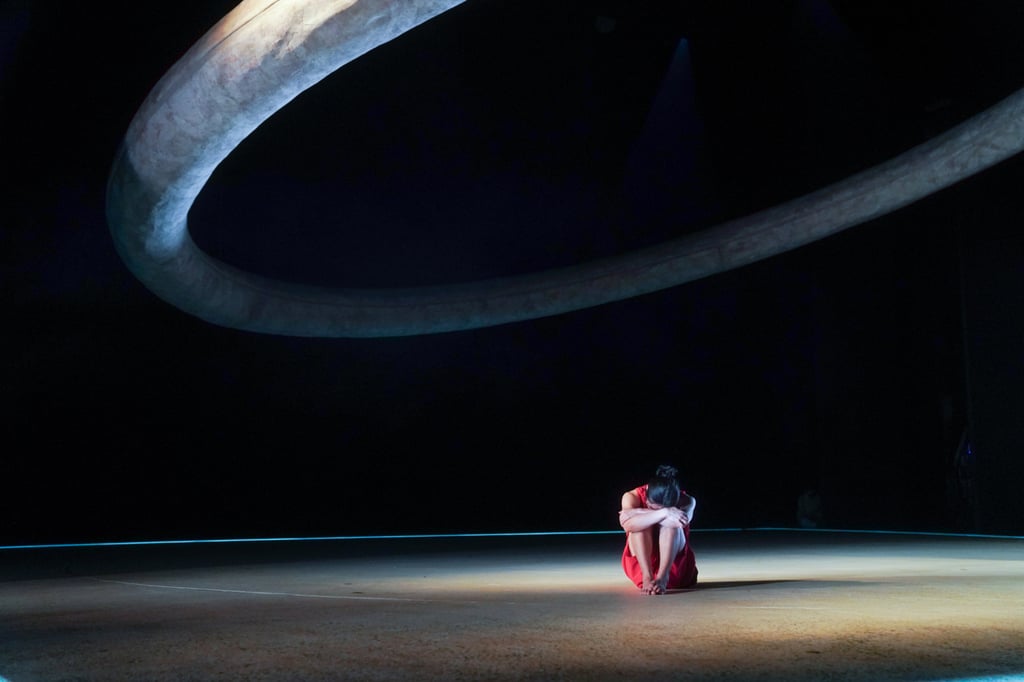Review | Chinese Nezha legend inspires Hong Kong Dance Company production that’s inventive and inspiring
- Nezha: Untold Solitude dramatises the life of the dragon-slaying prince of Chinese myth in five scenes that have an almost hallucinatory power
- The all-male cast dance superbly to a haunting score, the choreography is innovative and the staging stark and inspired, making for a powerful interpretation

Artistic director Yang Yuntao, his associate choreographer Xie Yin and their creative team have taken an oblique, minimalist approach rather than a conventional narrative one.
Stark, innovative and full of striking imagery, the work’s five scenes evoke key moments from Nezha’s journey with an at times almost hallucinatory power.
Yang and Xie’s inventive choreography, Mandy Tam’s imaginative costumes and Lawrence Lau’s haunting score all combine contemporary elements with a range of Chinese references to excellent effect (part of the score is in naamyam, a traditional Cantonese narrative song form, performed by The Gong Strikes One group).

Jan Wong’s inspired set consists of a massive hollow circle suspended above the stage, which can be raised, lowered or tilted and is enhanced by ingenious lighting (by Yeung Tsz-yan) and video projections (by Dan Fong) to create dramatically different moods.